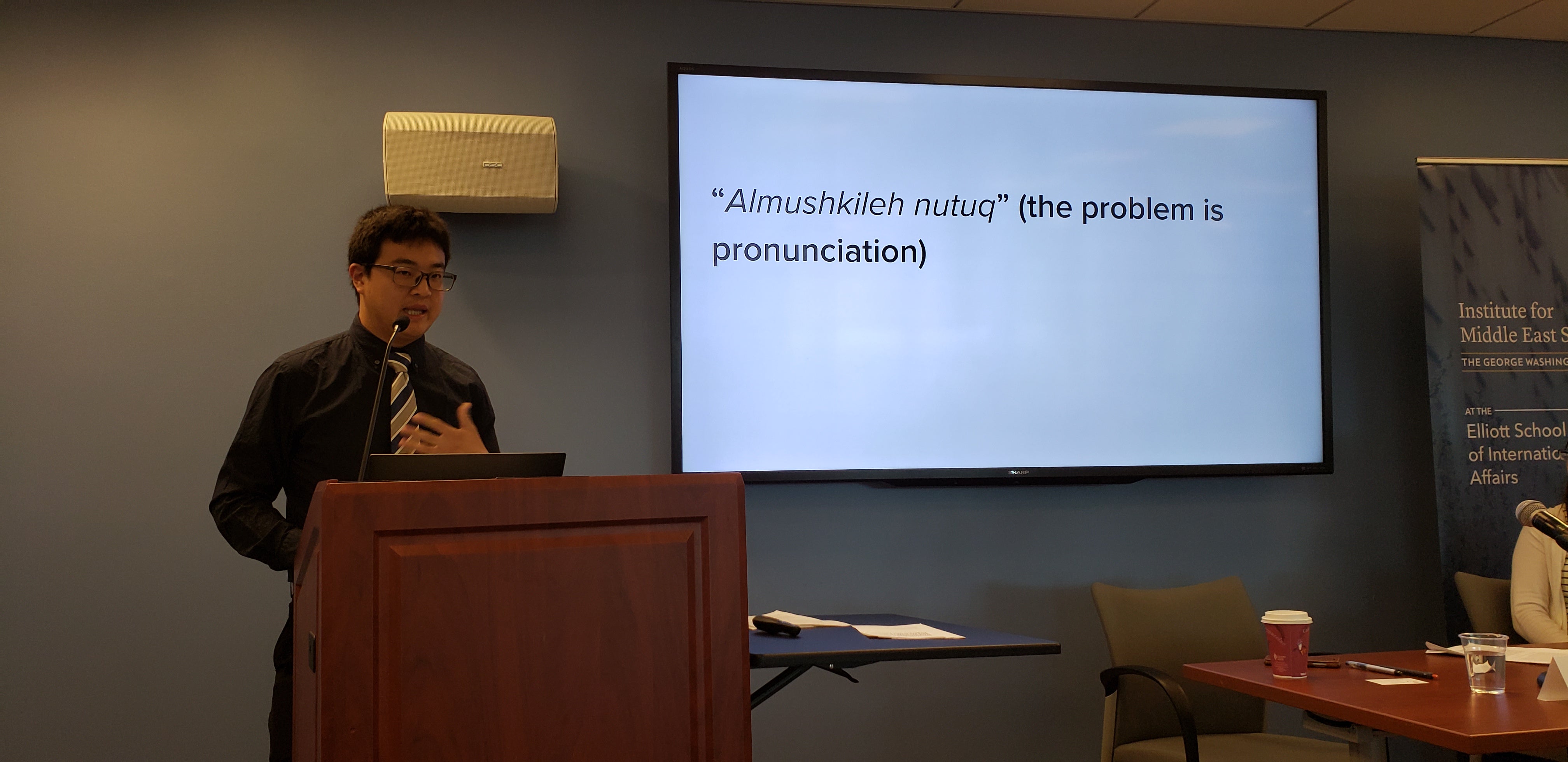
Timothy Loh graduated from the MAAS program in 2016 as part of an accelerated dual-degree program at Georgetown University, after earning a B.S. in Foreign Service (Culture and Politics) in 2015. At CCAS, he situated his study of deaf populations in the Middle East in its cultural, social, and historical context, taking graduate-level classes at Gallaudet University in Sociolinguistics and Deaf Studies to supplement coursework in MAAS. After graduation, he worked in refugee assistance and education in Jordan and Lebanon for two years. In 2018, he began his studies as a PhD student in HASTS (History; Anthropology; and Science, Technology, and Society) at the Massachusetts Institute of Technology, where he is researching the politics of deafness in Jordan and the broader Arab world.
This interview was conducted in July 2018.
What has your experience been like living in Lebanon and Jordan?
I’ve generally found the experience very rewarding. While adjusting was difficult when I first moved to Jordan, over the past two years I built a strong community that I was very sad to leave at the end of May. I’ve also appreciated the opportunity to do some good in the short time I’ve spent here, whether by working alongside refugees to serve other refugees—and seeing some of them joyfully resettled elsewhere—at Collateral Repair Project, or shaping the minds of future Jordanian and global leaders at King’s Academy. I’ve just arrived in Lebanon and I’m looking forward to a productive summer—I’m a coordinator for the LEAP Program, which runs a summer English remedial program for Palestinian refugee youth in Tyre, many of whom come from families who have been here since the Nakba in 1948.
How did you get interested and involved in teaching?
I’d been interested in getting a PhD since my junior year in college, due in large part to the inspiring professors who invested in my learning. I am thankful in particular to Professor Sylvia Önder (Arabic and Islamic Studies), who first introduced me to anthropology and the study of deaf communities; Professor Fida Adely, who took a chance on me in supervising my very first venture out into the field; and Professor Rochelle Davis, who supported me in my research interests and provided sound advice at every turn. I was fortunate during MAAS to participate in the Apprenticeship in Teaching program, through which I attended workshops and trainings in teaching and completed authentic teaching tasks, including designing a syllabus, writing a teaching philosophy, and giving a guest lecture. I was able to put these lessons into practice as a Teaching Fellow at King’s Academy last year—I enjoyed teaching my students there and I hope I had a positive impact on them!
In addition to Arabic, you studied Jordanian sign language. What role has language played in your education and career?
Language has been crucial in my education and career. I’m grateful for the training I received in Modern Standard Arabic at Georgetown that built a strong foundation for me to learn Levantine Arabic these past two years, which I use in both my professional and personal life. It was particularly valuable when I was working at Collateral Repair Project, as many of the Syrian, Iraqi, and Sudanese refugees we worked with spoke limited English. The MAAS program really drilled into me that learning Arabic is essential to the responsible study of the Arab world, especially as an aspiring anthropologist, and I am continually working towards fluency. Arabic also provided a gateway for me to learn Jordanian Sign Language (lughat al-ishara al-urduniyya, or LIU), as many deaf Jordanians use Arabic as their first or second language and live in a society where Arabic remains the dominant language. While Arabic and LIU are different languages, they share some commonalities and Arabic was often the medium through which I learned LIU.
In 2016, you published a paper on refugees and technology. How do you hope to build on this interest, as well as other interests, at MIT?
When I was deciding between graduate programs, I finally chose MIT’s HASTS program because, aside from being trained in cultural anthropology, I also wanted to be firmly rooted in the theories and traditions of science and technology studies. Technology plays such a nebulous role in our society today; in an era marked by rapid technological advances and the embedding of technology in everyday life, it is often seen either as a panacea to all our problems or the source of all our ills, with little room for nuance. In HASTS, I hope to research how medical rehabilitative technologies for deaf people (some of which are being invented at MIT!) interact with cultural discourses that argue that such “cures” are unnecessary and that deaf people are a unique linguistic minority who do not need to be “fixed.” Situated in the Jordanian deaf community, my project also asks what religion has to say about all of this. I hope my work can broadly speak to discussions on technological advances and their ethical implications for the people whose lives they actually affect.
Follow Timothy on Twitter @tim_loh.
Grayson Lee interned at CCAS in the summer of 2018 and currently studies at Brown University.